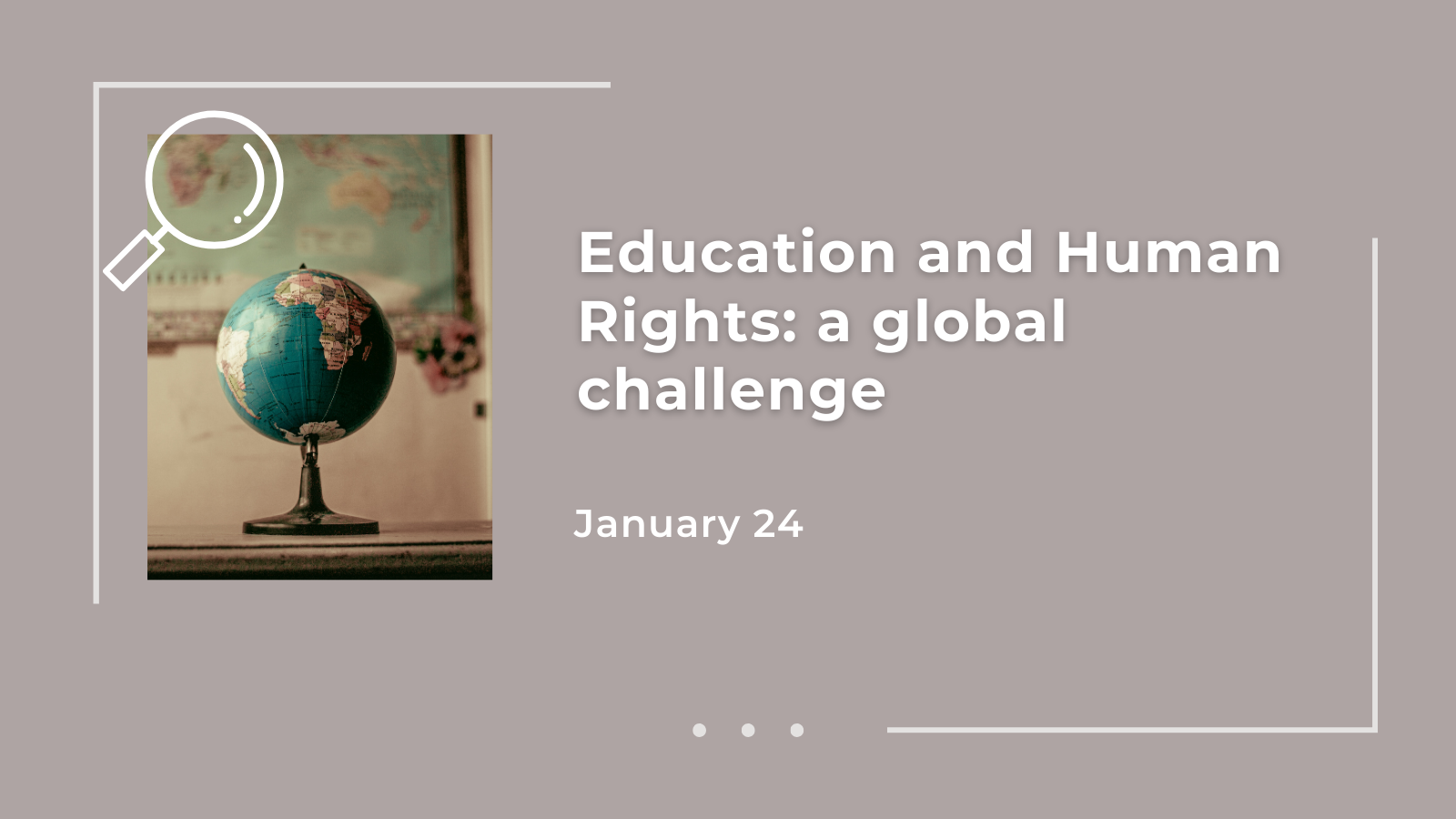
Education and Human Rights: a global challenge
In 2018, the United Nations General Assembly proclaimed January 24 as Education Day. In this sixth edition, the slogan “Learning for lasting peace” has been adopted. This approach comes in the face of the current wave of violent conflict, which goes hand in hand with a worrying increase in discrimination, racism, xenophobia and incitement to hatred.
This day, celebrated worldwide, goes beyond being an annual commemoration; it is a reminder of the fundamental importance of education as a basic human right. It not only highlights educational achievements and challenges, but also underscores the intrinsic connection between education and human rights.
Access to quality education is a universally recognized human right, enshrined in the United Nations Universal Declaration of Human Rights. This right is the foundation on which other rights are built, since education provides the necessary tools to understand, exercise and defend human rights.
Education as a human right implies not only the availability of educational institutions, but also accessibility and adequacy. This means that education must be available to all, without discrimination, and must be of quality, relevant and culturally appropriate. Furthermore, education should not simply be an act of transmitting information, but a process that fosters critical thinking, creativity and respect for rights and diversities.
In this sense, at the heart of the relationship between education and human rights is the principle of equality. Access to equitable and quality education is essential to ensure that all people, regardless of their origin, gender, ethnicity, sexual orientation, religion or socioeconomic status, can fully enjoy the exercise of their rights. Education is not only a means to acquire knowledge, but also a powerful tool to combat discrimination and promote inclusion.
In the context of Education Day, it is essential to reflect on the persistent challenges that hinder the full realization of the right to education. In many parts of the world, lack of resources, gender discrimination, political instability and armed conflict continue to be significant barriers to access to quality education. Addressing these challenges is not only a matter of improving educational infrastructures, but also of advocating for inclusive policies that respect and protect human rights.
According to UNESCO data from 2023, the number of out-of-school children globally has increased by 6 million since 2021 and now stands at 250 million, revealing that progress in education remains stagnant. Globally, 16% of children and youth remain out of school.
Sub-Saharan Africa accounts for nearly 30% of the world’s out-of-school children. One in five African children does not attend school and only half attend upper secondary school.
A survey conducted in April 2023 by UNICEF revealed that there are 7.8 million out-of-school children in Afghanistan. Approximately only half of those of elementary school age and one-fifth of those of secondary school age are enrolled.
The armed conflict in the Gaza Strip, which has suffered an escalation in violence and conflict following the Hamas terrorist attacks in Israel in October last year, with a response of relentless attacks by the State of Israel that has even led to the United Nations Assembly issuing a statement calling for a ceasefire and South Africa filing a complaint against the State of Israel before the International Court of Justice for violations of International Humanitarian Law, has also been another region severely affected.
In the Gaza Strip – where children make up approximately 50% of the population – the right to education has become virtually non-existent. Educational centers have been attacked, and all children have stopped attending classrooms, which now function as shelters for displaced families, but unfortunately are not safe places and have been targeted.
For all these reasons, a crucial aspect is the promotion of human rights education in educational programs. Integrating the teaching of fundamental human rights principles into the curriculum not only informs students about their rights, but also promotes a culture of respect, tolerance and justice. Human rights education should not only be limited to theory, but should also inspire action, empowering individuals to advocate for their own rights and those of others.
Moreover, it not only provides academic knowledge, but also fulfills the crucial role of transmitting history, including its dark moments and fundamental lessons. By remembering and learning from the mistakes and triumphs of the past, society can cultivate a collective consciousness that drives the prevention of injustices and human rights violations. Historical memory, integrated into education, not only preserves the truth, but also nurtures empathy, tolerance and commitment to building a more just and equitable world. In this sense, education becomes the tool that enables future generations to understand the importance of remembering and learning from history in order to safeguard human rights and build a brighter future.
On Education Day, we must renew our unwavering commitment to the promotion and protection of human rights through education. This means not only celebrating achievements, but also advocating for concrete actions to address persistent challenges. Education is the foundation on which to build a more just and equitable world, where each individual can reach his or her full potential and contribute to the well-being of society. Ultimately, Education Day is a reminder that investing in education is investing in the present and the future for all.
Javier Graña, FIBGAR collaborator



